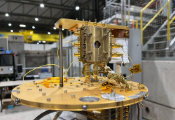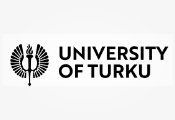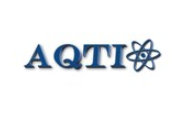IISc Partners With UCL to Accelerate Research in Clinical Sciences and Quantum Technology
andita Vijayasimha, Bengaluru, November 22, 2024 -- The Indian Institute of Science (IISc) and University College London (UCL) have initiated a new strategic partnership to advance collaborative efforts in healthcare innovation. This follows after a letter of intent to foster closer collaboration with the Institute’s upcoming Postgraduate Medical School in the areas of research, education, innovation, and commercialisation.
The partnership is expected to enhance joint research capabilities in the fields spanning basic and clinical sciences, applied engineering, and clinical practice. Now the two will form a joint working group to explore potential initiatives in interdisciplinary domains such as digital health, quantum technology, artificial intelligence, and medicine.
It will accelerate research in clinical sciences and quantum technology, to play a critical role in bridging the gap between theoretical research and practical healthcare solutions. By combining expertise in bio-engineering, biology, and medicine, the partnerships envisaged to develop advanced medical devices, diagnostic technologies, and treatment protocols that can transform patient care. The collaboration is also expected to result in new programmes, supported through external funding, including joint PhDs, faculty exchanges, research fellowships, and the sharing of best practices in healthcare systems.
Further, artificial intelligence (AI) and machine learning (ML) in healthcare can help predict patient outcomes, identify optimal treatment paths, and personalize therapies. Collaborations may focus on developing AI tools to assist in clinical decision-making and improve diagnostic accuracy.
Besides translational research partnerships allow for multi-disciplinary teams to develop better therapeutics and ensuring faster translation from laboratory research to real-world treatments.
“We will now strengthen our collaboration with University of College of London to pursue research in emerging areas. This partnership will empower innovation and education in medical research and healthcare, aligning with our objective of setting up world-class postgraduate programmes at our upcoming medical school,” said Prof Govindan Rangarajan, director, Indian Institute of Science.
“This next phase of our partnership will extensively enhance joint research capabilities in areas like artificial intelligence in healthcare, quantum computing and robotics. It will also foster educational initiatives to prepare the next generation of healthcare professionals,” said Dr Michael Spence, president and provost, University College of London.
Quantum computing has the potential to significantly accelerate drug discovery by simulating molecular interactions at unprecedented speeds. Researchers from both institutions can pool resources and expertise to harness quantum computing for developing new drugs or improving existing ones.
In addition, it will enable precision in medical imaging technologies. With advancements in MRI or CT scans using quantum sensors could lead to more detailed imaging with less radiation exposure.
Joint research centres will give attention to both clinical sciences and quantum technologies to foster interdisciplinary innovation. These centers can create synergies between physicists, biologists, engineers, and healthcare professionals to explore novel approaches. The talent exchange and training programmes coming out of the partnerships are seen to allow researchers and students from both institutions to work together, to enable knowledge exchange and build expertise. By combining the strengths of clinical research and the emerging field of quantum technology, the partnerships can greatly accelerate healthcare innovations, improving everything from diagnostic tools to new treatment options, he said.




































